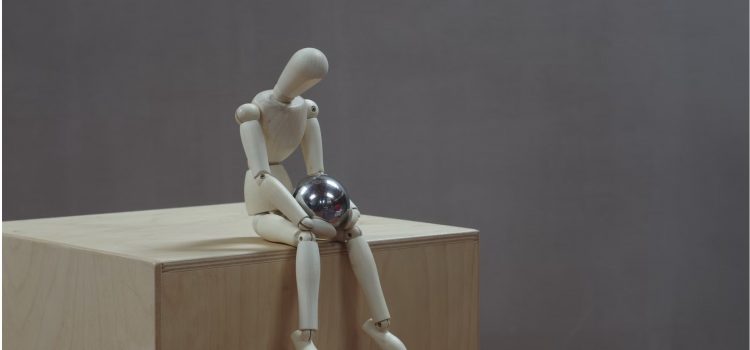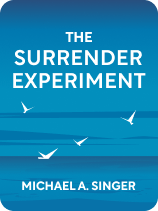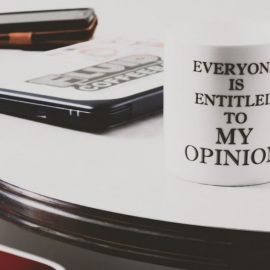

This article is an excerpt from the Shortform book guide to "The Surrender Experiment" by Michael A. Singer. Shortform has the world's best summaries and analyses of books you should be reading.
Like this article? Sign up for a free trial here.
Want to know how to let go of wanting to control everything? What are the benefits of letting go of control?
According to author Michael Singer, it’s pretty presumptuous of us to think we should know what life should be doing and try to control it. In The Surrender Experiment, he asks us to instead consider trusting that life knows exactly what’s supposed to happen and allowing it to naturally unfold.
Read on to learn how to let go of wanting to control everything by going with the flow, according to Singer’s advice.
Learning How to Let Go of Control
In his book The Surrender Experiment, Michael Singer shows us what can happen when you learn how to let go of wanting to control everything and simply let life, or the “universe,” do what it wants to do. This is what he calls “surrender.” He explains that the universe is imbued with an intelligence that’s far beyond the limits of human understanding. Life has been evolving for billions of years. From the smallest embryonic cells to the vast planetary systems, the forces of life do exactly what they’re meant to do without our intervention.
Singer clarifies that surrendering doesn’t mean “dropping out” or being ambivalent about life, but rather it means fully diving into the flow of life. It also doesn’t mean giving up your free will—surrendering means aligning your will with the greater will of the universe. For example, if you’re presented with an opportunity to make some contribution to the world, it’s because life wants that to happen. You should stop to consider the bigger picture rather than decide based on what you like or want. Even if it’s something you don’t particularly want to do, you should recognize that life knows better than you do, and if you take the opportunity, your life will be better for it in ways you can’t always imagine. So the surrender experiment is ultimately an exercise in trust.
How to Let Go of Your Preferences
Through close observation, Singer found that his mind was constantly making judgments about what was good or bad, what he liked and disliked, and he wanted to control everything to suit his preferences. For example, he’d tend to reject social invitations or requests for favors because he preferred to be left alone. He’d actually try to control everything in his environment to limit his interaction with other people. He also noticed his approach to everyday activities would be influenced by his thoughts about the weather. If he thought the weather was “good,” he’d have a positive outlook. If he thought it was “bad,” he’d think negatively.
After contemplating this, he concluded that constantly wanting to control everything in life is futile. Life has its own direction of flow and trying to resist it is like trying to swim against the flow of a river. This is why we’re often so frustrated—we’re always trying to make life go the way we want, but our wants and preferences are not always aligned with what life wants to do. Singer concluded that his judgments and preferences might be getting in the way of what the universe wanted for him. So, he decided to experiment to see what would happen if he began ignoring his likes and dislikes and just accepted whatever life brought to him.
| Surrender to the Now In The Power of Now, Eckhart Tolle says our inner voice is our ego that’s always analyzing, judging, and trying to control everything. This is exactly the insight Singer had. Tolle says we tend to think our statuses, such as our jobs, social roles, and our preferences, are what define us. But these are not the true essence of our being, and identifying with them keeps us from being fully present and authentic in our lives. Like Singer, he says we need to stop judging things as good or bad, and simply accept things as they are. Tolle explains that judging something as bad makes us want to reject and resist it, and that keeps us from being in the present. Tolle’s concept of “surrendering to the now” is aligned with Singer’s experiment to allow life to happen and stop resisting things based on likes and dislikes. |
Because wanting to control external circumstances to suit our preferences is the way we’re accustomed to living, Singer knew this would be a difficult challenge. So, he started practicing with something simple—the weather. He’d notice his judgments about it, such as “I don’t like this rain” and then he’d let go and accept that the rainy weather was just a fact and he couldn’t control it. By doing this, he was able to detach from his annoyance about “bad” weather and just enjoy the day regardless.
(Shortform note: Stoic philosophy, originating in ancient Greece, teaches careful control of emotions, as they arise from false judgments about the world. In The Daily Stoic, Ryan Holiday says the foundation of Stoic thought is the premise that because we can’t control everything in life, we must learn how to control the way we react to life. In this worldview, the most important tool we have is reason. If we think rationally and calmly through situations, we’ll be much more at peace and live a more virtuous life than someone who is always at the whim of their emotions.)
How to Practice Surrender
After success with the weather, Singer applied his technique for letting go of wanting to control everything to the rest of his life by detaching from his personal preferences and just saying yes to whatever the universe put in front of him. When someone asked him to do something, or an opportunity presented itself, he’d notice any mental resistance or urge to reject the situation. Then he’d set that resistance aside and say yes instead. Since resistance and judgment made up the bulk of his mental chatter, by giving no attention to it he was finally able to silence that inner voice.
Singer describes his simple two-step process to practicing surrender and letting go of wanting to control everything:
- When life presents you with an opportunity, notice any feelings you have about what you want or don’t want, your likes and dislikes.
- Ask what would happen if your preferences weren’t a factor, and do that.
For example, let’s say a friend asks you to go along on a trip with them, and you’re undecided. It sounds fun, but you’re also busy, and you don’t really like flying. If you take your preferences out of the equation, it would be up to your friend, and you’d go. So go. Life is putting this in front of you. You never know what other opportunities might present themselves as a result of this trip.
(Shortform note: This is in contrast with a lot of recent self-help advice urging people to learn to say no. In The Big Leap, Gay Hendricks says that you shouldn’t spend time doing anything that doesn’t enhance your state of fulfillment. He says we tend to spend too much time doing things we don’t really want to do out of a sense of obligation, and we should resist that. This is in conflict with Singer’s advice to set aside what you like and want, and trust that life is presenting this opportunity to you, even if it might not feel personally “good” to you.)

———End of Preview———
Like what you just read? Read the rest of the world's best book summary and analysis of Michael A. Singer's "The Surrender Experiment" at Shortform.
Here's what you'll find in our full The Surrender Experiment summary:
- The story of how a hippie college kid became a wealthy CEO
- How to make your life exactly as the universe wants it to be
- How to free your mind from limiting thoughts, emotions, and energy






